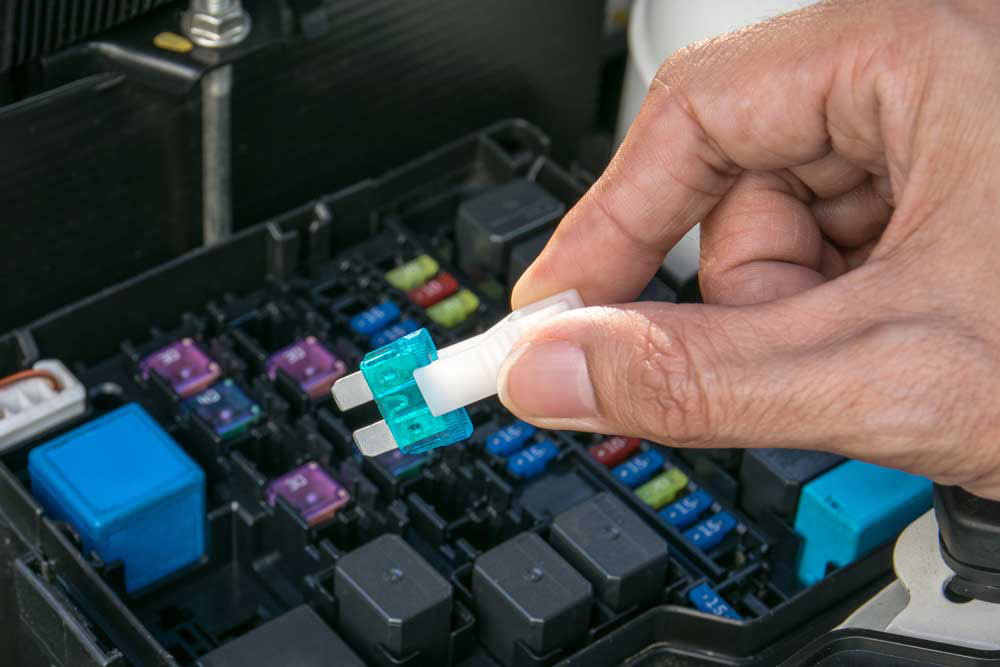Newer cars utilize computers and electricity to perform various operations. From the radio to the engine, electricity runs throughout most components of your vehicle. If electrical issues arise it could cause unsafe driving conditions or a non-functioning vehicle. There are usually several common electrical issues that are considered in a diagnosis.
Dead Battery
The battery is the most common cause of electrical failure. This is typically the easiest of issues to diagnose, because the vehicle completely shuts down and all electrical devices stop working. No lights, no radio, and no engine turn-over. Often times, it only takes a jump start to get the vehicle running again, but in some cases you may be due for a full battery replacement.
Battery Cables
If your vehicle won’t start, the first thing you should investigate is the battery. If you notice corrosion, try cleaning the cables and terminals. This could be a simple fix.
Bad or Failing Alternator
If your vehicle’s battery will not hold a charge after a jump start, then this is an indication that the alternator is faulty. The alternator acts as a generator for your battery. If it breaks, then there is no charge powering the battery, and the vehicle will not start.
Overworked Starter
It’s all about that “click.” If you’ve ever tried to start your vehicle and all you hear is a clicking noise, then your starter or solenoid has gone bad.
Blown Fuses
If a particular electrical system fails, but not another, you can attribute that to a blown electrical fuse. Your vehicle houses a fuse box and it is a simple task to replace fuses.
Spark Plugs
If your vehicle is running but the idling is rough or the car feels sluggish, then more than likely your experiencing the symptoms of failing spark plugs. A tune-up and plug change can be done easily and get your car running like new again.
If you think you’re experiencing any of these issues, contact Courthouse Automotive at 757-453-6399

